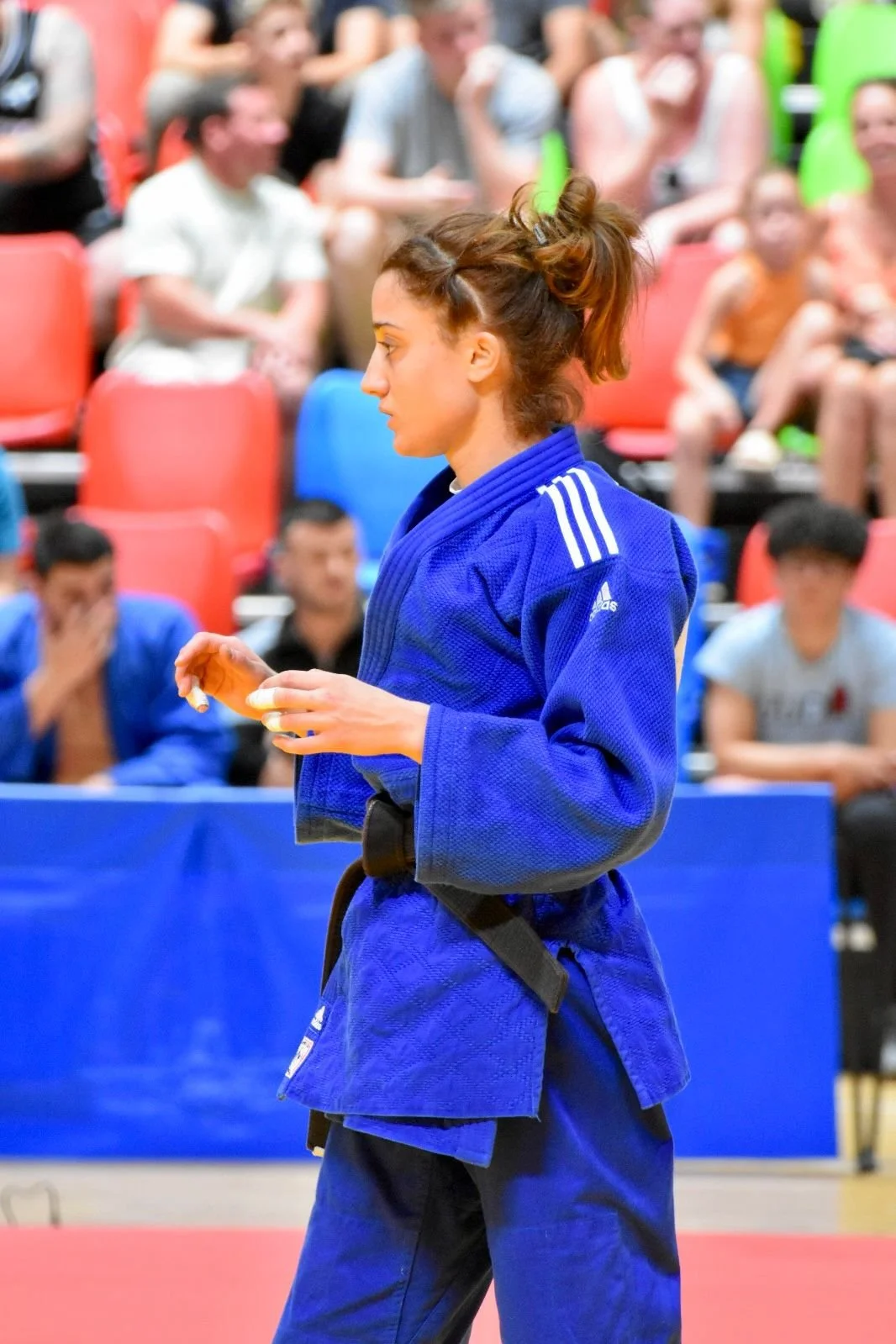Women in Sport - A conversation with Katrina Esposito
We sat down with Katrina Esposito, Maltese Judoka, Paris 2024 Olympian, 2022 Commonwealth Games Bronze Medallist, and Masters in Sports Science, for an open and powerful conversation about what it really means to be a women in sport.
Judo is a physically intense and technically intricate martial art that emphasizes throws, joint locks, and pins to subdue an opponent using leverage and balance rather than brute strength. It demands not only physical conditioning and precise technique but also sharp mental discipline, strategic thinking, and emotional control, as athletes must remain calm and focused while adapting quickly to a constantly changing combat environment.
Katryna, you represented Malta at the Paris 2024 Olympics and the 2022 Commonwealth Games. Can you briefly walk us through how your journey in judo has evolved over the years?
My judo journey began at the age of four, under the guidance of my father, who was also my first coach. While I started young, it wasn't until I was 19 that I truly committed to judo with the explicit goal of international competition. Since then, I believe there's been significant technical improvement thanks to countless hours of dedicated training, even if my inner perfectionist is still not entirely satisfied!
Competing at the Olympics is a major milestone. What lessons did you take away from your experience in Paris?
Competing at the Olympics was a monumental achievement, and my key takeaway is "to never give up." With less than a year before the Games, I tore my ACL, which required major surgery. However, through sheer perseverance and hard work, I was able to recover and return to elite-level sport in a very short time. It was this unwavering determination that kept my Olympic dreams alive.
“Olympics was a monumental achievement, and my key takeaway is "to never give up."”
You recently published a study on "Myths and Facts Surrounding the Relationship Between the Menstrual Cycle and Performance" in elite female judoka. What inspired you to explore this topic, and what impact do you hope it has?
My recent paper, "Myths and Facts Surrounding Knowledge of the Relationship Between the Menstrual Cycle and Performance: Perceived Knowledge Regarding Elite Female Judoka in an Olympic Cycle," was a fairly personal topic for me. As a female athlete in a weight-cutting sport, I was exposed to "locker room" discussions about painful or missed periods. Having only trained under male coaches, I was curious about the perceptions of my fellow female athletes worldwide regarding how their cycles affected their performance. I hope this study will increase awareness and understanding of menstrual cycles in elite female athletes, which is an important and often overlooked topic.
“Having only trained under male coaches, I was curious about the perceptions of my fellow female athletes worldwide regarding how their cycles affected their performance.”
As a Judoka, how have you navigated societal expectations around physical strength, femininity, and toughness in a male-dominated sport?
Growing up, I participated in both sailing and judo, sports where there were very few female participants at the time. This environment initially led me to try and fit in by being "one of the guys." However, when I couldn't fit in, I had no issue proving I was just as tough and strong as them. I never let comments from other parents or teachers saying judo wasn't "feminine" bother me. I ignored them and stayed focused on my goals and on what I enjoyed doing rather than others' opinions.
“When I couldn't fit in, I had no issue proving I was just as tough and strong as them.”
What message would you give to young girls entering martial arts, especially about balancing strength with emotional openness or vulnerability?
My message to young girls would be to strive for a balance between strength and emotional openness. True strength comes from being able to control and channel your emotions, allowing yourself to feel them but not to the point of being consumed by them. It's about being vulnerable while also being mentally tough enough to channel these emotions into something positive, such as martial arts.
“Strive for a balance between strength and emotional openness. True strength comes from being able to control and channel your emotions […]”
Follow Katrina’s Journey on Instagram
Katryna will be presenting her study during the upcoming conference, Women in Sport: Strength, Stigma & the Silent Struggles, taking place on 7 August at MOVE Clinic. She will also be one of the panelists on the team. For more information and to purchase your ticket, visit https://fb.me/e/5GSxq1hiG

